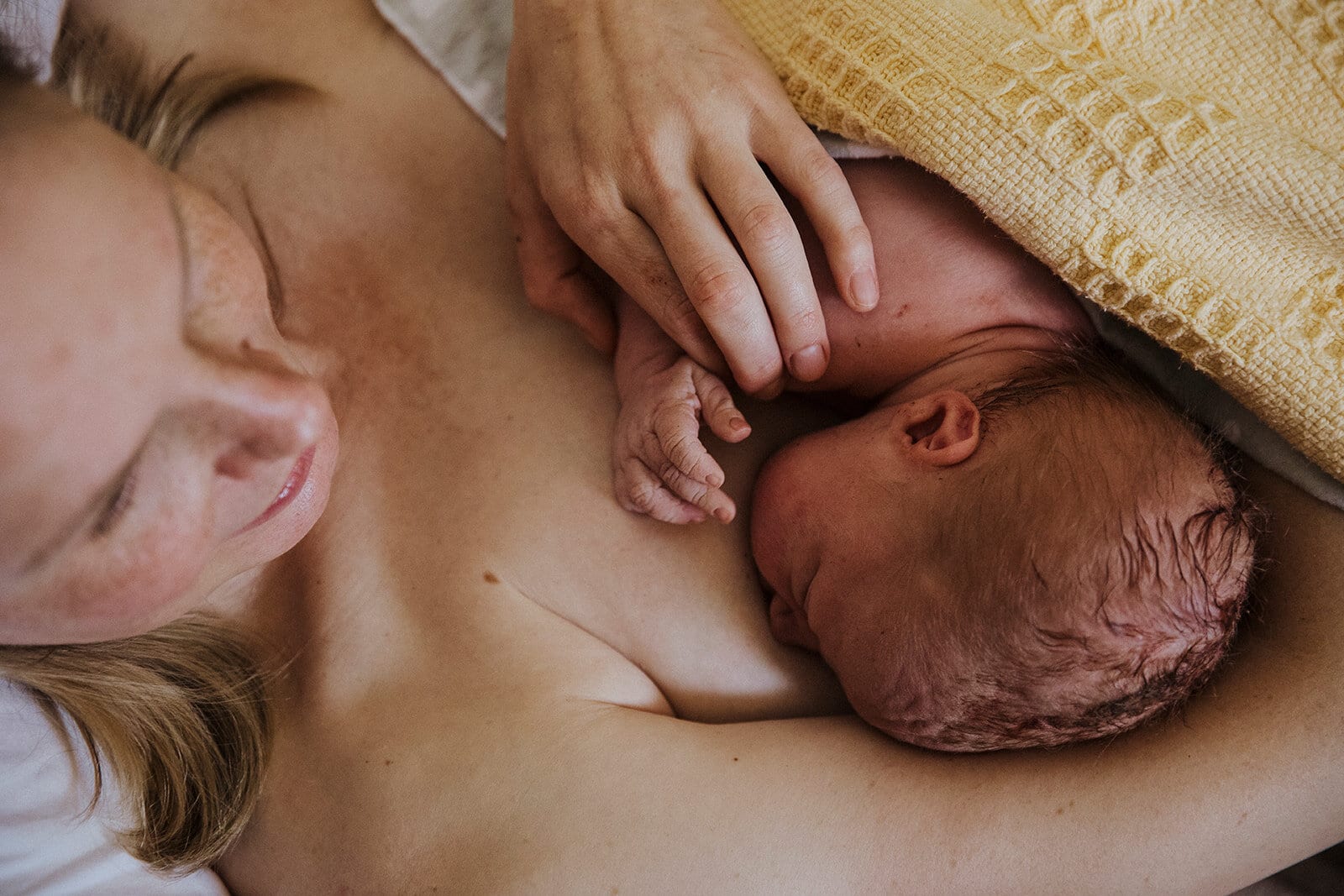Postpartum How to Plan for Postpartum
How to Plan for Postpartum

The postpartum period is the weeks and months that follow birth. If you’re pregnant for the first time, you may not have heard about it and that’s understandable considering it’s not a hot topic of social conversation. Postpartum is often a private experience that occurs behind closed doors, hence many women only learn about it when they’re in the midst of it; cradling their newborn, leaking milk and tears, blindsided by the sheer intensity of this new season.
It’s a time of immense change and challenge – where you’ll be learning about your new baby while you simultaneously heal from birth, establish breastfeeding (if you choose to) and navigate sleep deprivation. Before long you’ll realise that the best thing you can do is surrender to the joyous highs and demanding lows of new motherhood…and you may wish that you had been a little more prepared.
Planning for postpartum means you’re setting the foundation for a slow and supported entry into motherhood. It’s the kind of preparation that isn’t emphasised nearly enough in pregnancy, hence we spend all our time and energy readying a nursery and stocking up on cotton onesies, oblivious to what awaits. However, it’s incredibly important for your physical recovery and your mental health to have some semblance of a plan in place; to set the groundwork for the unpredictable nature of the fourth trimester (the 12 weeks following birth).
Here’s five things you can do in pregnancy (or pre-conception) to plan for postpartum:
1. Put money aside each week
Financial stress is a common experience in early parenthood which can prevent many people from embracing a postpartum plan. However, the long-term benefits of planning for postpartum can’t be underestimated, especially in regards to your mental and emotional health. Even if you can squirrel away $20 a week, you’ll have a decent amount to rely on in postpartum so you can order ready-made postpartum meals, seek help from a private lactation consultant (read more about preparing to breastfeed HERE and perhaps hire a cleaner for the first few weeks.
2. Establish a plan regarding visitors and be open and honest with your friends and family
This can be a tricky conversation to have, especially if you and your partner are social people who want nothing more than to show off your baby to your nearest and dearest. However, many visitors don’t understand the reality of postpartum, nor do they respect boundaries. Unfortunately, they all come to see the baby and promptly forget about the mother.
For a moment, picture yourself a few days after birth – you may have stitches in your perineum or you may be recovering from a caesarean, you haven’t slept longer than two hours at a time, you’re emotional and sore and you’re trying to attach your baby to your breast.. and there’s six people in your living room asking for tea. If you feel overwhelmed reading that sentence, just imagine how disconcerting the lived experience would be. Consciously carving out time in the first few weeks after birth to recover and heal, to bond with your baby and rest, is one of the very best things you can do for yourself because you’re just thinking of you and your baby instead of managing the expectations of visitors. It’s the big first step to taking care of yourself in motherhood by prioritising your needs.
Sharing your plans with your family and friends while you’re pregnant is recommended as is creating a sign for your door that reads: We’re not having visitors at the moment. We’re getting to know our baby and embracing this quiet time to rest and heal. Thank you so much for your thoughts and well wishes. We can’t wait to see you soon!
When you are ready to see people, ask them to come at a certain time (10-11am) and let them know that you’re prioritising rest and won’t be making food. This is about creating boundaries for yourself in motherhood which is hard but incredibly beneficial for your mental health and wellbeing.
3. Stock your freezer
Babies are typically most unsettled in the early hours of the evening (witching hour) which is when you’ll want to start cooking dinner (read more about cluster feeding in the evening HERE. It can get very stressful very quickly, especially if you’re hangry and living off snacks you can eat with one hand. Ready-made meals that only need to be reheated are like gold! In your third trimester, it’s a really good idea to batch cook nourishing meals so you can rely on them in the fourth trimester. If a full-day of cooking feels overwhelming, just cook double a few nights a week so the preparation is manageable and budget-friendly.
4. Ask for help
Yes, it’s hard, but your friends and family really do want to help you in postpartum (but often, they don’t know how). If you’ve got older children, it’s always a good idea to get your loved ones to help with the pre-school/school run and take your kids to the park/cafe/library for an outing so they get uninterrupted attention outside the house. Once you feel comfortable having visitors, ask them to hang the washing out (or fold the dry washing), empty the dishwasher or hold your baby so you can have a shower. It’s these simple, everyday chores that can feel very overwhelming in the fourth trimester so having someone come in and do them helps to ease your stress. If you have the funds, hiring a house cleaner during postpartum is definitely recommended.
5. Be honest with your partner
Your relationship is about to go through one of its greatest challenges. Yes, new parenthood really does rock you and being prepared for this is the best way to move through the challenge with empathy and understanding. Start talking about how you’ll support each other through postpartum right now. Discuss your expectations of each other, what you’re feeling vulnerable about and how you’ll navigate mental health challenges. Your conversations may also benefit from a shared understanding regarding social obligations, household responsibilities and juggling work and parenthood. Keep your conversation flowing!
Further Resources:
If you’re interested in working with a postpartum doula, you’ll find a list of doulas in my DIRECTORY.
Planning for postpartum is a major part of our new book, The Complete Australian Guide to Pregnancy and Birth. Pre-order your copy HERE.
If you’re interested in learning more about the first 6 months of motherhood, you’ll love my online course Discovering Motherhood which you can read more about HERE.
Categories
Related Products
-
The Complete Guide to Postpartum: A Mother-Focused Companion for Life After Birth
$25.00Full of expert advice, mothers’ stories, and evidence-based information that will guide you into motherhood with confidence.
Get your copy of our Perineal Massage Guide in your inbox
Keep Reading
We think you might enjoy these articles

Why planning for postpartum is just as important as planning for birth – and how to do it right

Cracked Nipples: Causes, Treatment and Prevention

Caesarean Birth Recovery

What is a C-Section Shelf?
@AustralianBirthStories
Follow along with us
@AustralianBirthStories
Follow along with us
@AustralianBirthStories
Follow along with us
@AustralianBirthStories
Follow along with us
@AustralianBirthStories
Follow along with us
@AustralianBirthStories
Follow along with us
@AustralianBirthStories
Follow along with us
@AustralianBirthStories
Follow along with us
@AustralianBirthStories
Follow along with us
@AustralianBirthStories
Follow along with us
@AustralianBirthStories
Follow along with us
@AustralianBirthStories
Follow along with us




